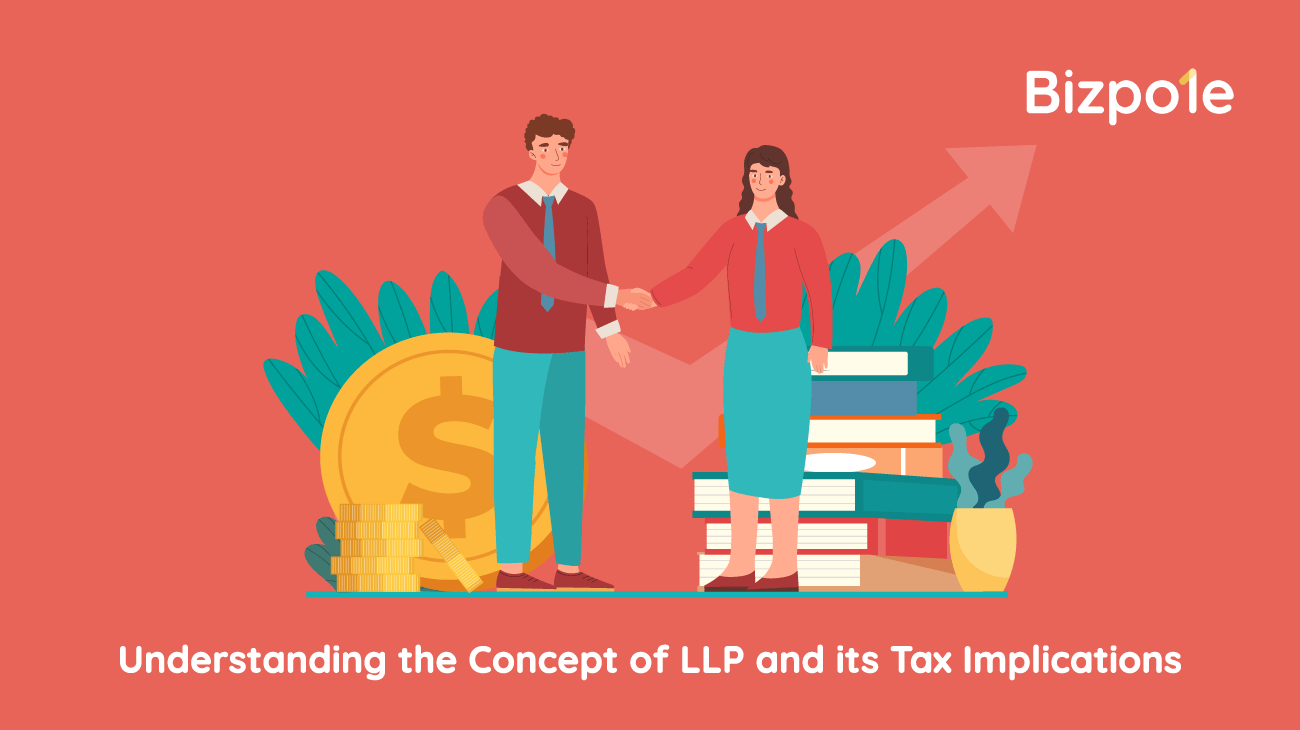Introduction
LLP stands for Limited Liability Partnership. It is a business structure that combines limited liability protection from a corporation with the adaptability and tax advantages of a partnership. Professionals like attorneys, accountants, architects, and consultants who want to run their enterprises cooperatively while safeguarding their assets are big fans of LLPs. LLPs provide a balance between partnership flexibility and limited liability protection, making them an attractive option for professionals who want to work together while safeguarding their assets.
Obtaining Digital Signatures, DDINs, name reservations, completing incorporation paperwork, and requesting a Certificate of Partnership Deed from the MCA are all required for LLP registration in India.
ADVANTAGES OF LLP
An LLP (Limited Liability Partnership) provides its partners with several benefits. To discuss some of the benefits:
Flexibility– A key benefit of an LLP (Limited Liability Partnership) is flexibility. Compared to other business arrangements, LLPs provide partners more power over management and decision-making. Partners are free to choose how the partnership will be run, whether it be by designating one partner as a managing partner or dividing up management duties among themselves.
Cost Savings-
- Formation costs: An LLP often has fewer legal and administrative requirements, which results in cheaper creation expenses.
- Costs of compliance: Compared to corporations, LLPs often have fewer compliance obligations. As a result, there will be less paperwork, less formality, and less administrative effort.
- Shared Costs: Professionals in industries like law, accountancy, or consulting frequently create LLPs to collaborate and pool resources. Partners can split expenditures for things like office space, utilities, equipment, and marketing by combining their knowledge, abilities, and resources.
- Taxation Aspect on LLP– The taxation aspect of LLP is one of its greatest advantages. It includes pass-through taxation, individual taxation, self-employment taxes, deducting the personal share of the partnership’s business expenses from their taxable income, and state and local taxes.
Tax Implications for Limited Liability Partnership (LLP)
These are governed by the Income Tax Act, of 1961. LLP is treated as a separate legal entity, and its partners are typically taxed in a similar way to the shareholders of a company.
- The premise for taxability of capital gains
The premise for the taxability of capital gains for an LLP is quite similar to that of a partnership firm. Capital gains are taxed under the head ‘Capital Gains’ and are subject to tax at rates specified in the Income Tax Act. The taxability of capital gains for an LLP arises when there is a transfer of a capital asset, such as property or investments held by the LLP.
- Exemption under Section 47
Exemption under Section 47 of the Income Tax Act provides that transfers of specified capital assets shall not be considered transfers for capital gains tax. One of the provisions under Section 47 of the Income Tax Act exempts transfers of capital assets between an LLP and its partners. This exemption is available only to LLPs and their partners and not to other types of businesses.
- Litigation around Taxability
There has been litigation around the taxability of LLPs in India. The courts were examining whether the conversion of a partnership firm into an LLP would attract capital gains tax. The Bombay High Court in its ruling held that since there is no transfer of assets or liabilities, the conversion of partnership firms into LLPs would not attract the capital gains tax. Additionally, there have been cases challenging the applicability of Minimum Alternate Tax (MAT) in LLPs. MAT applies to companies but not to partnership firms.
Conclusion
To conclude, LLPs have specific tax implications under the Income Tax Act in India. They are taxed similarly to partnership firms. LLPs are eligible for certain exemptions under Section 47 of the Income Tax Act. The courts have provided clarity on the taxability of LLPs, with rulings holding that conversion of partnership firms into LLPs does not attract capital gains tax and MAT does not apply to LLPs.



















